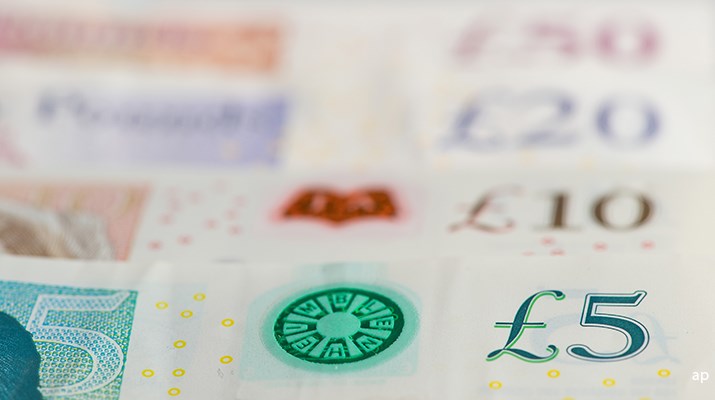
Tobacco giant Imperial Brands is the latest big name dividend payer to cut its payout, which is a blow to investors who thought that tobacco firms’ payments were safe in the Covid-19 crisis. But there are some signs that the frenetic pace of dividend cuts in March and April has started to slow down.
Yields have also started to drop back to more realistic levels following the dividend cuts and recovery in stock markets since the March sell-off. In our May update, six out of 20 firms in our monthly list of top FTSE dividend payers had yields above 10%, which is usually a reliable indicator of a dividend cut ahead. This month, just two stocks in our list have 10% yields – Imperial and BT (BT.A) – and they have already announced cuts.
With cruise firm Carnival (CCL) off the list because Morningstar analysts no longer think it has an economic moat, Imperial moves to the top of the pile with a trailing yield of 13% (Carnival has also just been ousted from the FTSE 100 in the latest reshuffle). Factoring in the dividend cut, Imperial’s forward yield more than halves to 5.5%, however, it is still only one of just two UK companies under Morningstar coverage that have a wide economic moat and are also rated five stars, which means the shares are significantly undervalued.
Will BP Cut?
BP (BP.) stands out on our list with the highest forward yield at more than 9%, because, unlike Shell (RDSB), it has not (yet) announced any changes to its dividend. Still, some fund managers think BP could still surprise the market with a dividend cut this year, including William Meadon of JPMorgan Claverhouse (JCH).
Just as there has been shake-up at the top of the table this month, there have been a number of changes at the bottom, particularly among shares yielding between 2 and 3%. Wide-moat drinks giant Diageo (DGE), a favourite of fund managers such as Nick Train, has re-entered the top 20 with a yield around 2.42% - with a rally in its share price since the March 18 low, Morningstar analysts think the company’s shares are now overvalued at £28.70.
Meanwhile, caterer firm Compass (CPG), which is trying to raise £2 billion from shareholders, has entered our list of top 20 dividend payers for the first time with a yield of just under 2.99%.
|
Stock |
Ticker |
Trailing Yield (%) |
Forward Yield (%) |
Moat |
Star Rating |
Dividend Suspended/Cut? |
|
IMB |
13.02 |
5.54 |
Wide |
5 |
Yes |
|
|
BT.A |
12.84 |
|
Narrow |
5 |
Yes |
|
|
BP. |
9.05 |
9.34 |
Narrow |
4 |
No |
|
|
RDSB |
8.64 |
3.67 |
Narrow |
5 |
Yes |
|
|
WPP |
8.56 |
|
Narrow |
5 |
Yes |
|
|
SSE |
7.16 |
7.16 |
Narrow |
3 |
No |
|
|
BATS |
6.44 |
6.61 |
Wide |
5 |
No |
|
|
HSBA |
5.60 |
|
Narrow |
4 |
Yes |
|
|
VOD |
5.49 |
5.65 |
Narrow |
4 |
No |
|
|
GSK |
4.89 |
4.64 |
Wide |
3 |
No |
|
|
JMAT |
3.84 |
3.84 |
Narrow |
4 |
No |
|
|
PSON |
3.67 |
3.67 |
Narrow |
4 |
No |
|
|
RR. |
3.29 |
|
Narrow |
4 |
Yes |
|
|
ULVR |
3.25 |
3.28 |
Wide |
3 |
No |
|
|
CPG |
2.99 |
|
Narrow |
3 |
Yes |
|
|
VCT |
2.86 |
|
Narrow |
3 |
Yes |
|
|
AZN |
2.59 |
2.59 |
Wide |
3 |
No |
|
|
RB. |
2.54 |
2.96 |
Narrow |
3 |
No |
|
|
BRBY |
2.49 |
|
Narrow |
4 |
No |
|
|
DGE |
2.41 |
2.41 |
Wide |
2 |
No |
|
|
Source: Morningstar Direct. June 8, 2020 |
|
|
|
|
||
How We Select Companies
Morningstar.co.uk has filtered 20 income shares using a range of criteria to determine which are the highest dividend paying stocks on the UK stock market, which still look sustainable.
Each income stock must have an “economic moat”, which means that the company has a sustainable competitive advantage; only stocks with a “narrow” or “wide” moat make the cut. We then add in the Morningstar Star Rating, which indicates whether the company’s shares are trading below or above their fair value.
We also look at the historic yield (trailing 12 months) and compare that with the forward yield.
Another filter is then added to screen for those companies whose five-year dividend yield is less than 15%. This adds an element of consistency – for example, a one-off special dividend would skew the yield in one year to an artificially high level – and remove companies whose share price plunge has pushed the yield up significantly.
There is an inverse relationship between share prices and yield – the dividend yield on a company will rise when the share price falls and vice versa. That’s why the top 10 on our list is dominated by companies with a Morningstar Rating for Stocks of 5 and 4 stars, which means analysts think they are trading below their fair values.






















